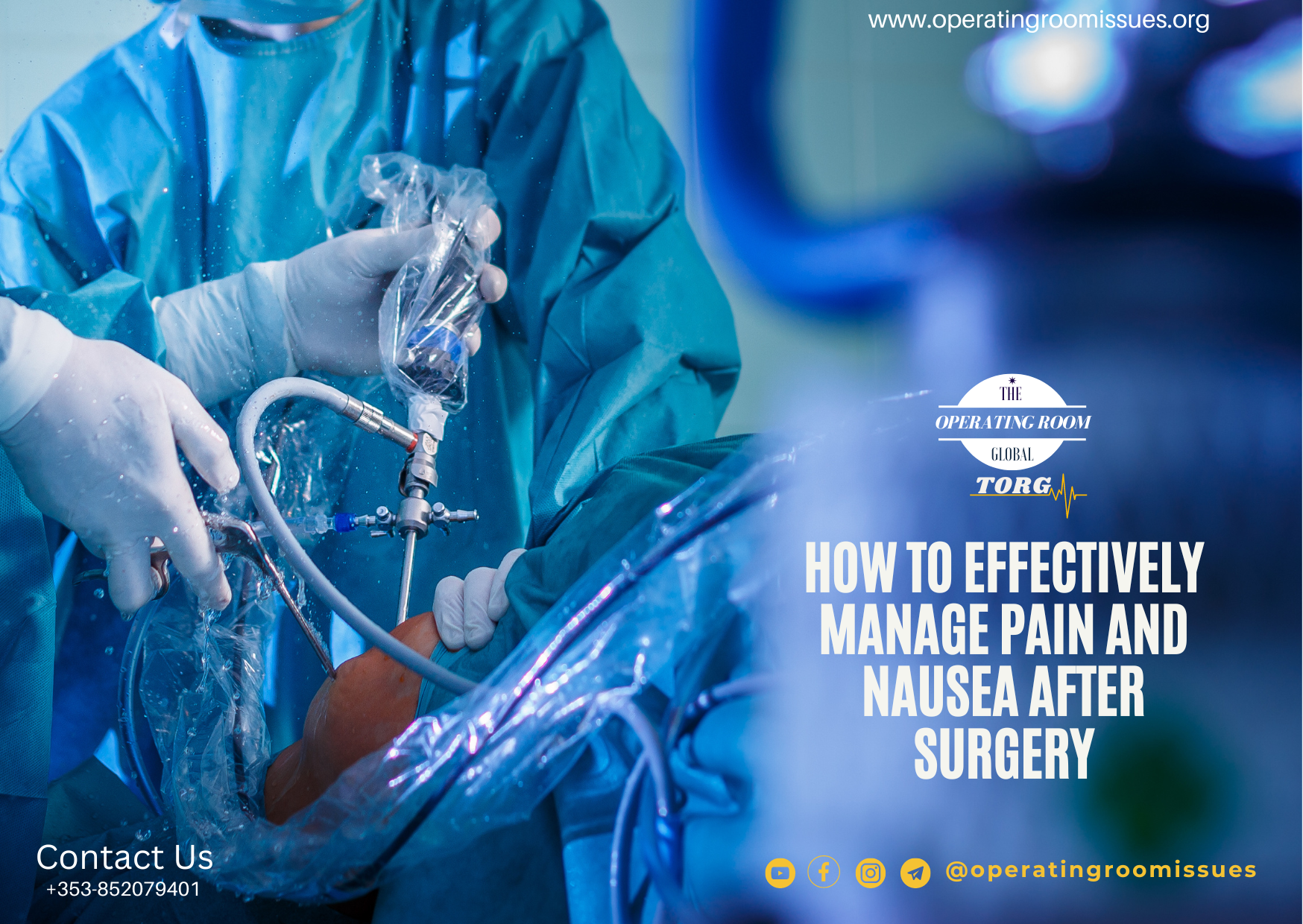By Adebusola Owokole (TORG Founder/President)
Surgery is a common medical procedure that can cause pain and nausea during the recovery process. Pain and nausea management is an essential aspect of postoperative care to ensure that patients recover comfortably and successfully. In this blog post, we will discuss some effective strategies to manage pain and nausea after surgery.
Pain Management Strategies:
Medications: Pain medications are usually prescribed after surgery to manage pain. Non-opioid medications such as acetaminophen or nonsteroidal anti-inflammatory drugs (NSAIDs) may be used initially, followed by stronger medications such as opioids if necessary. It is essential to follow the prescribed dosage and frequency of pain medication to avoid overuse or dependence.
Ice or Heat Therapy: Applying ice or heat to the affected area can help reduce pain and inflammation. Ice therapy is especially useful during the first 48-72 hours after surgery, while heat therapy is beneficial after the initial swelling and inflammation have subsided.
Relaxation Techniques: Relaxation techniques such as deep breathing exercises, meditation, or guided imagery can help reduce stress and muscle tension, which can contribute to pain.
Physical Therapy: Physical therapy may be recommended after surgery to help reduce pain and improve mobility. Exercises such as gentle stretching, range of motion exercises, and strengthening exercises can help improve circulation, reduce inflammation, and promote healing.
Nausea Management Strategies:
Medications: Anti-nausea medications such as ondansetron, metoclopramide, or prochlorperazine may be prescribed to manage nausea. These medications work by blocking the neurotransmitters in the brain that cause nausea and vomiting.
Ginger: Ginger has been shown to be effective in reducing nausea and vomiting. It can be consumed as ginger tea, ginger chews, or ginger supplements.
Hydration: Drinking plenty of fluids can help prevent dehydration and reduce nausea. Sipping on clear fluids such as water, broth, or electrolyte beverages is recommended.
Rest: Resting in a quiet and dark room can help reduce nausea by reducing sensory stimulation.
Conclusion:
Pain and nausea management is an essential aspect of postoperative care. By following the prescribed pain medication dosage, applying ice or heat therapy, practicing relaxation techniques, and engaging in physical therapy, patients can manage pain effectively. Anti-nausea medications, ginger, hydration, and rest are some effective strategies to manage nausea. It is crucial to discuss any pain or nausea concerns with a healthcare provider to ensure that appropriate management strategies are implemented. With proper pain and nausea management, patients can recover comfortably and successfully after surgery.

